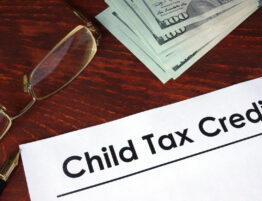A Do NOT Do This List for Divorcing Parents
When adults get divorced, they are often hurt, depressed, sad and/or angry. Emotions get even messier when you are a child or teenager whose parents are getting divorced. A child tries to find the new normal all while dealing with major upheaval in how they are cared for and who is caring for them. The child, as well as an adult, grieves the loss of the old relationship and often living with both parents. Children’s brains are still developing. Part of childhood is learning to cope with hormones, changing emotions, and changing bodies. Grief throws an additional hurdle in the way for these children. Frequently, they must also process the anger, hurt, depression, and sadness that their parents are exhibiting verbally and non-verbally. Each child grieves in his/her own way. The child must adapt the unique relationship s/he has with each parent to fit life’s new circumstances.
There are ways that parents can make the transition easier, lowering the hurdles faced by the child. The parents’ behavior during and after the divorce makes the biggest difference in positive outcomes for the child. In 2013, Women’s Day Magazine’s, Natasha Burton, wrote “10 Things Children of Divorce Wish Their Parents Wouldn’t Do. Avoid these post-marital missteps to stay in your kids’ good graces,” which provides excellent advice and insight from the adult children of divorce. The article provides a variable DO NOT DO THIS List including:
- Badmouthing the other parent (even if it is true).
- Discouraging your kids from talking about the other parent (your ex).
- Telling the kids all the dirty details of the divorce or information about what is happening in Court.
- Keeping the kids completely in the dark and not telling them you are getting divorced.
- Skipping your kid’s events to avoid your ex, unless there is an active restraining order preventing it.
- Making the situation (the divorce) all about you.
- Making the kids feel guilty about time with the other parent;
- Justifying your bad behavior (especially behavior that was a major cause of the divorce) to your kids.
- Putting your kids in the middle.
- Making everyone, including your children, feel your unhappiness.
The article also provides recommendations from professionals on what divorcing parents’ should do instead. We would also add the following to the DO NOT DO THIS List:
Not Allowing your Child to Grieve
Children often feel completely alone during and after the divorce. Being innately in-tune with their parent’s hurt, they believe they aren’t allowed to feel sad, hurt, or grief when losing a parent or stepparent. It’s important to remember to continue to put their needs first. Remind them that they are allowed to be sad or hurt that Mommy moved out or that Stepmother isn’t around anymore. Help them find support or assistance through therapy and divorce support groups for kids. Remind them they are not alone, but do not minimize their feelings.
Making Your Child ask the Other Parent for Child Support, Healthcare or Extracurricular Costs
While the article touches on this in Tip 9, it is important to remember, that money conversations should remain between the parents. A child should not be made to gopher money back and forth. This causes a child to feel devalued and can lead to manipulation by child pitting both parents against each other to get the result the child wants. In the age of digital banking and Venmo, AndroidPay, ApplePay, etc., there is very little need to exchange paper checks or cash back and forth. Keep it between the parents.
Believing Everything your Child Says About the Other Parent
Children from a very young age learn to survive and manipulate to obtain desired outcomes. When parents are married, this manipulation is easily discovered and the parents successfully communicate about their children. However, when parents are separated this manipulation often goes unchecked leading to mental health issues. The child that excels at manipulating his or her parents usually suffers from low-self esteem and fears of abandonment. Typically this child is unable to compromise, accept failure, and cope with undesired outcomes. This causes problems in the child’s future career, friendships, and romantic or family relationships.
Not doing these actions will set you and your co-parent (your ex), on the path to raising well-adjusted children. While divorce is never “easy,” it can be “less hard.” Make it “less hard,” after all, it’s for the children.






